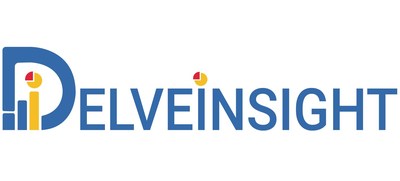Menin Inhibitors Market Forecasts Signal Strong Uptake of Menin Inhibitors in Hematologic Oncology Across the 7MM During the Forecast Period (2020-2034) | DelveInsight
The menin inhibitor market is poised for rapid growth, with REVUFORJ setting the foundation and a strong pipeline of innovative, genetically targeted therapies on the horizon. With high levels of unmet need, particularly in NPM1-mutant and KMT2A-rearranged AML, this class is expected to play a critical role in the next generation of precision oncology therapies for hematologic malignancies.
LAS VEGAS, July 15, 2025 /PRNewswire/ -- DelveInsight's Menin Inhibitors Market Size, Target Population, Competitive Landscape & Market Forecast report includes a comprehensive understanding of current treatment practices, emerging menin inhibitors, market share of individual therapies, and current and forecasted market size from 2020 to 2034, segmented into 7MM.

Key Takeaways from the Menin Inhibitors Market Report
- As per DelveInsight's analysis, the total market size of menin inhibitors in the 7MM is expected to surge significantly by 2034.
- Leading menin inhibitors companies, such as Kura Oncology, Sumitomo Pharma America, Johnson & Johnson, and others, are developing novel menin inhibitors that can be available in the menin inhibitors market in the coming years.
- Some of the key menin inhibitors in the pipeline include Ziftomenib, Ziftomenib combinations with venetoclax/azacitidine, cytarabine + daunorubicin (7+3), Enzomenib (DSP-5336), Bleximenib (JNJ-75276617), and others.
- In June 2025, Kura Oncology and Kyowa Kirin announced that the US FDA had accepted Kura's New Drug Application (NDA) seeking full approval for ziftomenib as a treatment for adult patients with relapsed or refractory (R/R) acute myeloid leukemia (AML) with a nucleophosmin 1 (NPM1) mutation. The application has been granted Priority Review and assigned a Prescription Drug User Fee Act (PDUFA) target action date of November 30, 2025.
- In June 2025, Syndax presented new REVUFORJ data in relapsed/refractory mNPM1 and NUP98r Acute Leukemia from the AUGMENT-101 trial at EHA 2025.
- In June 2025, Johnson & Johnson reported updated Phase 1b findings demonstrating promising antileukemic effects and a favorable safety profile when bleximenib (JNJ-75276617) was combined with venetoclax and azacitidine (VEN + AZA) in AML patients carrying KMT2A gene rearrangements or NPM1 mutations.
Discover which indication is expected to grab the major menin inhibitors market share @ Menin Inhibitors Market Report
Menin Inhibitors Market Dynamics
The menin inhibitors market is emerging as a highly promising area within oncology, particularly in the treatment of hematological malignancies. The primary driver for this market is the rising prevalence of acute leukemias, particularly acute myeloid leukemia (AML) and acute lymphoblastic leukemia (ALL), where mutations in KMT2A and NPM1 genes are critical disease drivers. The approval of Syndax Pharmaceuticals' REVUFORJ as the first menin inhibitor for relapsed/refractory AML and ALL has set a benchmark, creating momentum for pipeline development and commercial interest.
The market dynamics are further influenced by increasing R&D investments and partnerships among biotech and pharmaceutical companies aiming to expand indications beyond hematologic cancers. Early-stage studies are exploring the potential of menin inhibitors in solid tumors such as colorectal cancer, prostate cancer, and other indications where aberrant epigenetic regulation plays a role. Companies like Kura Oncology, Sumitomo Pharma, and others are actively developing next-generation menin inhibitors with improved selectivity and safety profiles, fueling competitive intensity in the market.
However, several challenges persist that may affect the market growth trajectory. The highly specific patient populations, predominantly defined by genetic mutations like KMT2A rearrangements and NPM1 mutations, limit the addressable market size in the short term. Moreover, clinical resistance mechanisms, such as compensatory pathway activation, may reduce the long-term efficacy of monotherapy approaches, pushing companies to explore combination regimens. Pricing and reimbursement hurdles for targeted oncology therapies, especially in emerging markets, may further constrain broad adoption.
Looking ahead, the menin inhibitors market is poised for gradual expansion as biomarker-driven diagnostics become more widespread, enhancing patient identification and therapy personalization. Strategic collaborations between diagnostic companies and drug developers will be key in ensuring robust companion diagnostic development. Additionally, as long-term clinical data matures and broader indications are validated, the market could witness accelerated uptake, especially if menin inhibitors demonstrate synergy with other therapies like FLT3 inhibitors or immune checkpoint inhibitors. Overall, while still in its early commercial phase, the menin inhibitors market holds significant promise as part of the next wave of epigenetic and transcriptional-targeting cancer therapeutics.
Menin Inhibitors Treatment Market
Menin inhibitors are mainly utilized to treat certain forms of acute myeloid leukemia (AML) that involve mutations in the KMT2A (formerly MLL) or NPM1 genes. They are also being explored in early-stage research for other cancers, including acute lymphoblastic leukemia (ALL), colorectal cancer, and various solid tumors.
Syndax's REVUFORJ (revumenib) is the first and only menin inhibitor approved for treating relapsed or refractory acute leukemia in patients aged one year and older who have a translocation in the lysine methyltransferase 2A (KMT2A) gene. The FDA approved this drug in November 2024, after previously awarding it Breakthrough Therapy, Fast Track, and Priority Review designations. The drug's New Drug Application (NDA) was reviewed and approved under the FDA's Real-Time Oncology Review (RTOR) initiative.
REVUFORJ works by inhibiting the interaction between menin and both the wild-type and fusion forms of the KMT2A protein. This interaction plays a crucial role in the development of KMT2A-rearranged acute leukemias by driving a leukemogenic transcriptional program. Preclinical studies in cells expressing KMT2A fusions have shown that revumenib disrupts this interaction, leading to changes in the expression of multiple genes, including those involved in cell differentiation.
Learn more about the menin inhibitors @ Menin Inhibitors Analysis
Key Emerging Menin Inhibitors and Companies
Kura Oncology (Ziftomenib), Sumitomo Pharma (Enzomenib), Johnson & Johnson (Bleximenib), and several other companies are currently engaged in the development and production of menin inhibitors, which have the potential to significantly impact and enhance the menin inhibitors market.
Ziftomenib is an experimental oral menin-KMT2A (MLL) inhibitor being developed for the treatment of Acute Myeloid Leukemia (AML). It has shown potential for use both as a standalone treatment and in combination with other targeted therapies. The drug is currently under investigation as a monotherapy in the KOMET-001 trial and in combination with standard-of-care treatments across different lines of therapy in the KOMET-007, KOMET-008, and KOMET-017 studies.
In April 2024, the FDA granted ziftomenib breakthrough therapy designation for the treatment of relapsed or refractory AML patients with NPM1 mutations, according to a press release from its developer, Kura Oncology.
Enzomenib (DSP-5336) is an experimental small molecule that targets the interaction between menin and mixed-lineage leukemia (MLL) proteins. Menin, a scaffold protein found in the nucleus, plays a critical role in regulating gene expression and mediating protein interactions that influence various biological processes such as cell proliferation, cell cycle regulation, genomic integrity, and blood cell formation. In preclinical models, enzomenib demonstrated selective inhibition of growth in human acute leukemia cell lines carrying KMT2A (MLL) rearrangements or NPM1 mutations.
The drug was found to suppress the leukemia-related genes HOXA9 and MEIS1, while enhancing the expression of CD11b, a gene linked to cell differentiation, in these leukemia models. The U.S. FDA granted enzomenib Orphan Drug Designation for acute myeloid leukemia (AML) in June 2022 and Fast Track Designation in June 2024 for relapsed or refractory AML with MLL rearrangements (MLLr) or NPM1 mutations (NPM1m). Similarly, Japan's PMDA awarded Orphan Drug Designation for the treatment of relapsed or refractory AML with MLLr or NPM1m in September 2024.
Bleximenib is an experimental oral menin inhibitor under clinical investigation for the treatment of newly diagnosed and relapsed/refractory acute myeloid leukemia (AML). The drug works by blocking a critical oncogenic interaction between menin and KMT2A fusion proteins, thereby interfering with a signaling pathway that promotes the growth of leukemic cells in patients with KMT2A rearrangements (KMT2Ar) or NPM1 mutations (NPM1m).
Currently, bleximenib is being studied in Phase 1, 2, and 3 clinical trials as both a standalone therapy and in combination with other AML treatments to assess its potential in various AML patient populations, including those newly diagnosed and those with relapsed or refractory disease. In June 2025, Johnson & Johnson reported updated Phase 1b findings demonstrating promising antileukemic effects and a favorable safety profile when bleximenib (JNJ-75276617) was combined with venetoclax and azacitidine (VEN + AZA) in AML patients carrying KMT2A gene rearrangements or NPM1 mutations. This study included patients with newly diagnosed AML who were ineligible for intensive chemotherapy, as well as those with relapsed or refractory AML. The data were presented in an oral session at the 2025 European Hematology Association (EHA) Congress (S137).
The anticipated launch of these emerging therapies is poised to transform the menin inhibitors market landscape in the coming years. As these cutting-edge therapies continue to mature and gain regulatory approval, they are expected to reshape the menin inhibitors market landscape, offering new standards of care and unlocking opportunities for medical innovation and economic growth.
To know more about menin inhibitors clinical trials, visit @ Menin Inhibitors Treatment
Menin Inhibitors Overview
Menin is a unique scaffold protein located in the cell nucleus and is encoded by the MEN1 (Menin 1) gene, a well-established tumor suppressor. Mutations in the MEN1 gene are widely recognized for their role in causing sporadic or inherited (autosomal dominant) endocrine tumor syndromes, collectively known as MEN1 syndrome. This association highlights the tumor-suppressing role of the MEN1 gene. Although the precise mechanisms are still under investigation, proposed pathways include the loss of cell cycle control and impaired inhibition of transcription factors like JunD, both of which may result from MEN1 mutations and the production of a truncated menin protein. Interestingly, menin displays an opposite role in certain blood cancers. In these hematological malignancies, menin functions as a critical oncogenic partner, supporting the initiation and maintenance of leukemia driven by the KMT2A oncoprotein and KMT2A fusion protein complexes.
Menin inhibitors are small molecules designed to block the interaction between menin and KMT2A by binding with high affinity to the menin KMT2A-binding site. This prevents KMT2A-driven transcription of downstream genes, thereby targeting a key pathway involved in the development of KMT2A-rearranged (KMT2Ar) and NPM1-mutated (NPM1m) acute myeloid leukemia (AML). Researchers are also exploring the therapeutic potential of disrupting the menin-KMT2A interaction in other leukemia types characterized by different genetic rearrangements that elevate HOXA gene transcription.
Menin Inhibitors Epidemiology Segmentation
The menin inhibitors market report proffers epidemiological analysis for the study period 2020–2034 in the 7MM, segmented into:
- Total Cases of Selected Indications for Menin Inhibitor
- Total Eligible Patient Pool of Selected Indications for Menin Inhibitor
- Total Treated Cases of Selected Indications for Menin Inhibitor
Menin Inhibitors Report Metrics | Details |
Study Period | 2020–2034 |
Menin Inhibitors Report Coverage | 7MM [The United States, the EU-4 (Germany, France, Italy, and Spain), the United Kingdom, and Japan] |
Key Menin Inhibitors Companies | Kura Oncology, Sumitomo Pharma America, Johnson & Johnson, Syndax, and others |
Key Menin Inhibitors | Ziftomenib, Ziftomenib combinations with venetoclax/azacitidine, cytarabine + daunorubicin (7+3), Enzomenib (DSP-5336), Bleximenib (JNJ-75276617), REVUFORJ, and others |
Scope of the Menin Inhibitors Market Report
- Menin Inhibitors Therapeutic Assessment: Menin Inhibitors current marketed and emerging therapies
- Menin Inhibitors Market Dynamics: Conjoint Analysis of Emerging Menin Inhibitors Drugs
- Competitive Intelligence Analysis: SWOT analysis and Market entry strategies
- Unmet Needs, KOL's views, Analyst's views, Menin Inhibitors Market Access and Reimbursement
Discover more about menin inhibitors in development @ Menin Inhibitors Clinical Trials
Table of Contents
1 | Key Insights |
2 | Report Introduction |
3 | Executive Summary of Menin Inhibitor |
4 | Key Events |
5 | Epidemiology and Market Forecast Methodology of Menin Inhibitor |
6 | Menin Inhibitor Market Overview at a Glance in the 7MM |
6.1 | Market Share (%) Distribution by Therapies in 2025 |
6.2 | Market Share (%) Distribution by Therapies in 2034 |
6.3 | Market Share (%) Distribution by Indications in 2025 |
6.4 | Market Share (%) Distribution by Indications in 2034 |
7 | Menin Inhibitor: Background and Overview |
7.1 | Introduction |
7.2 | Potential of Menin Inhibitor in Different Indications |
7.3 | Clinical Applications of Menin Inhibitor |
8 | Target Patient Pool |
8.1 | Key Findings |
8.2 | Assumptions and Rationale: 7MM |
8.3 | Epidemiology Scenario in the 7MM |
8.4 | Total Cases in Selected Indications for Menin Inhibitor in the 7MM |
8.5 | Total Eligible Patient Pool for Menin Inhibitor in Selected Indications in the 7MM |
8.6 | Total Treated Cases in Selected Indications for Menin Inhibitor in the 7MM |
9 | Marketed Products of Menin Inhibitor |
9.1 | Key Competitors |
9.2 | REVUFORJ (revumenib): Syndax |
9.2.1 | Product Description |
9.2.2 | Regulatory Milestones |
9.2.3 | Other Developmental Activities |
9.2.4 | Clinical Development |
9.2.5 | Safety and Efficacy |
10 | Emerging Therapies of Menin Inhibitor |
10.1 | Key Competitors |
10.2 | Ziftomenib: Sumitomo Pharma |
10.2.1 | Product Description |
10.2.2 | Other Developmental Activities |
10.2.3 | Clinical Development |
10.2.4 | Safety and Efficacy |
10.2.5 | Analyst Views |
List to be continued in the report | |
11 | Menin Inhibitor: Seven Major Market Analysis |
11.1 | Key Findings |
11.2 | Market Outlook of Menin Inhibitor |
11.3 | Conjoint Analysis of Menin Inhibitor |
11.4 | Key Market Forecast Assumptions of Menin Inhibitor |
11.4.1 | Cost Assumptions and Rebates |
11.4.2 | Pricing Trends |
11.4.3 | Analogue Assessment |
11.4.4 | Launch Year and Therapy Uptakes |
11.5 | Total Market Size of Menin Inhibitor in the 7MM |
11.6 | Market Size of Menin Inhibitor by Indication in the7MM |
11.7 | The United States Market Size |
11.8 | EU4 and the UK Market Size |
11.9 | Japan Market Size |
12 | Market Access and Reimbursement of Menin Inhibitors |
13 | SWOT Analysis of Menin Inhibitors |
14 | KOL Views of Menin Inhibitors |
15 | Unmet Needs of Menin Inhibitors |
16 | Bibliography |
17 | Report Methodology |
Related Reports
Acute Myeloid Leukemia Market Insights, Epidemiology, and Market Forecast – 2034 report delivers an in-depth understanding of the disease, historical and forecasted epidemiology, as well as the market trends, market drivers, market barriers, and key AML companies, including Bristol Myers Squibb, Agios Pharmaceuticals, Abbvie, Jazz Pharmaceuticals, Astellas Pharma, Pfizer, Novartis Oncology, Daiichi Sankyo, Chimerix, Takeda, Rafael Pharmaceuticals Inc., Delta-Fly Pharma, GlycoMimetics Incorporated, BerGenBio ASA, MacroGenics, Syndax Pharmaceuticals, Arog Pharmaceuticals, Forma Therapeutics, Sellas Life Sciences Group, Actinium Pharmaceuticals, Clear Creek Bio Inc., CellCentric Ltd., Biosight Ltd., Astex Pharmaceuticals, Inc., Curis, Inc., NexImmune Inc., Immunomedics, Inc., Sumitomo Dainippon Pharma Co., Ltd., Incyte Corporation, Aprea Therapeutics, Immunicum, DCPrime BV, GT Biopharma, Inc., Hanmi Pharmaceutical Company Limited, Cardiff Oncology, Bio-Path Holdings, Actinium Pharmaceuticals, Aptevo Therapeutics, Synimmune GmbH, GEMoaB Monoclonals, ImmunoGen, Inc., AGC Biologics S.p.A., Precigen, Inc., Novartis Pharmaceuticals, Xencor, Inc., Novartis, Celgene, Bristol Myers Squibb, among others.
Relapsed/Refractory Acute Myeloid Leukemia Market
Relapsed/Refractory Acute Myeloid Leukemia Market Insights, Epidemiology, and Market Forecast – 2034 report delivers an in-depth understanding of the disease, historical and forecasted epidemiology, as well as the market trends, market drivers, market barriers, and key R/R AML companies, including Ascentage Pharma, Cullinan Oncology, Kronos Bio, Maxinovel Pharmaceuticals, AB Science, CicloMed, Karyopharm Therapeutics, Antengene Corporation, GlycoMimetics, Servier, Novartis, ImmunoGen, among others.
Acute Myeloid Leukemia Pipeline
Acute Myeloid Leukemia Pipeline Insight – 2025 report provides comprehensive insights about the pipeline landscape, pipeline drug profiles, including clinical and non-clinical stage products, and the key AML companies, including Sellas Life Sciences Group, Stemline Therapeutics, Inc., Wugen, Inc., Schrodinger, Inc., MEI Pharma, Inc., Vor Bio, TC BioPharm, Pacylex Pharmaceuticals, Vor Biopharma, Vincerx Pharma, Inc., Aptose Biosciences Inc., Tr1X, Inc., TC Biopharm, Zhejiang ACEA Pharmaceutical Co. Ltd., BeiGene, Sellas Life Sciences Group, Seagen Inc., Sanofi, Servier Bio-Innovation LLC, Ryvu Therapeutics SA, Remix Therapeutics, Prelude Therapeutics, Precigen, Inc., PharmaEngine, Orca Biosystems, Inc., Immune System Key Ltd, MacroGenics, Sutro Biopharma, Inc., among others.
Relapsed/Refractory Acute Myeloid Leukemia Pipeline
Relapsed/Refractory Acute Myeloid Leukemia Pipeline Insight – 2025 report provides comprehensive insights about the pipeline landscape, pipeline drug profiles, including clinical and non-clinical stage products, and the key R/R AML companies, including Ascentage Pharma, Cullinan Oncology, Kronos Bio, Maxinovel Pharmaceuticals, AB Science, CicloMed, Karyopharm Therapeutics, Antengene Corporation, GlycoMimetics, Servier, Novartis, ImmunoGen, among others.
About DelveInsight
DelveInsight is a leading Business Consultant and Market Research firm focused exclusively on life sciences. It supports pharma companies by providing comprehensive end-to-end solutions to improve their performance. Get hassle-free access to all the healthcare and pharma market research reports through our subscription-based platform PharmDelve.
Contact Us
Shruti Thakur
info@delveinsight.com
+14699457679
Logo: https://mma.prnewswire.com/media/1082265/3528414/DelveInsight_Logo.jpg

